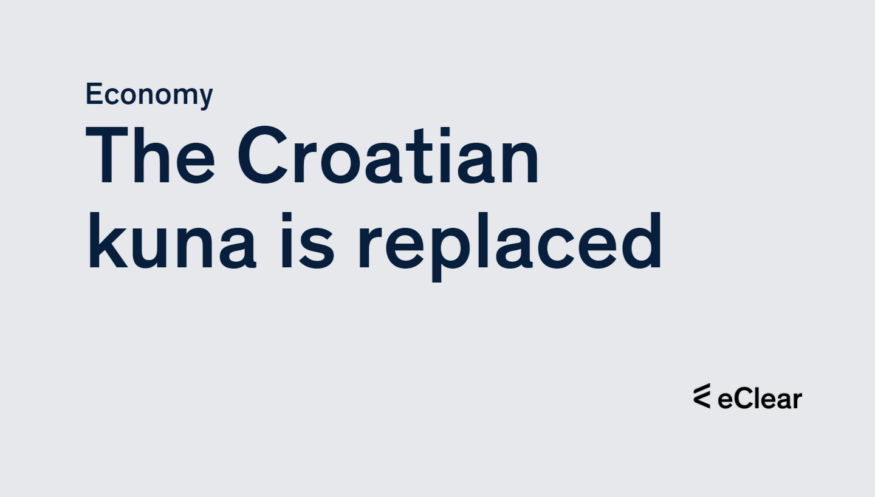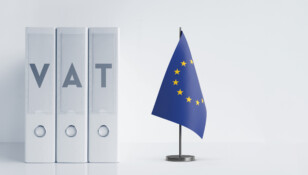The basis for the decision is the convergence report presented on 01/06/2022. Croatia has taken a significant step forward on the path to adopting the euro, said the President of the European Commission, Ursula von der Leyen. She said, “Croatia’s adoption of the euro also strengthens the euro. Twenty years after the introduction of the first banknotes, the euro has become one of the world’s most important currencies and has improved the livelihoods of millions of citizens across the Union. The euro is a symbol of European strength and unity. Congratulations to Croatia!”.
Valdis Dombrovskis, Executive Vice-President for an Economy Serving the People, praised Croatia’s great achievement in adopting Europe’s single currency less than a decade after joining the EU.
The 2022 Convergence Report also assesses the progress of Bulgaria, the Czech Republic, Croatia, Hungary, Poland, Romania, and Sweden towards joining the euro area. These seven Member States are not part of the euro area, but are legally obliged to adopt the euro. The report comes to the following conclusions:
- Only Croatia and Sweden fulfil the criterion of price stability;
- All Member States fulfil the criterion of sound public finances, except Romania, which is the only Member State subject to an excessive deficit procedure;
- Bulgaria and Croatia both fulfil the exchange rate criterion;
- Bulgaria, Croatia, Sweden, and the Czech Republic meet the criterion for long-term interest rates.
The report concluded that Croatia fulfilled the four nominal convergence criteria and that its legislation was fully compatible with the Treaty requirements and the Statute of the European System of Central Banks/ECB.
Introduction of the euro in Croatia
Following its assessment and considering the other factors relevant to economic integration and convergence, such as the balance of payments developments and the integration of labour, product and financial markets, the Commission considers that Croatia fulfils the conditions for adopting the euro. It has, therefore, also adopted proposals for a Council Decision and a Council Regulation on the introduction of the euro in Croatia. The Council will take the final decisions on adopting the euro in Croatia in the first half of July 2023, following discussions in the Eurogroup and the European Council and after receiving the opinion of the European Parliament and the ECB.
The report represents a decisive and historic step on Croatia’s path towards adopting the euro.

The new Croatian euro and cent coins
Overall assessment of readiness
The report also notes that in all the non-euro area Member States surveyed, except Croatia, national legislation in the monetary field is not fully compatible with EMU legislation and the European System of Central Banks/ECB statutes.
The Commission also examined other factors mentioned in the Treaty that should be considered when assessing the sustainability of convergence. This analysis showed that the Member States reviewed are well-integrated economically and financially with the EU. However, some are still vulnerable to macroeconomic disturbances and/or have to overcome challenges regarding the business environment and the institutional framework. Otherwise, risks to the sustainability of the convergence process could loom.
Effective implementation of the reforms and investments outlined in their national recovery and resilience plans will address key macroeconomic challenges. In the case of Hungary and Poland, these plans are currently being assessed by the Commission to ensure that all assessment criteria are met.
Background
The European Commission’s Convergence Report forms the basis for the Council’s decision on whether a Member State fulfils the conditions for joining the euro area.
The European Commission’s Convergence Report is separate from but published in parallel with the ECB’s Convergence Report. Convergence Reports are published every two years or at the specific request of a Member State to assess its prospects of joining the euro area (as in the case of Latvia in 2013). All Member States except Denmark are legally obliged to join the euro area. Denmark, which negotiated an opt-out in the Maastricht Treaty, is therefore not covered by the report.
The impact of the COVID-19 pandemic and the subsequent economic recovery in 2021 on the results of the 2022 Convergence Report was significant; however, the effect that Russia’s invasion of Ukraine, which started in February 2022, had on the historical data used to compile the report was limited. The economic projections for 2022 and 2023 published by the Commission on 16 May 2022 (Commission Spring Forecast 2022), which are used to assess the sustainability of convergence, fully note the extent to which economic convergence indicators are affected by the crisis triggered by Russia’s military aggression, as well as by other ongoing economic developments.
Source: ec.europa.eu







